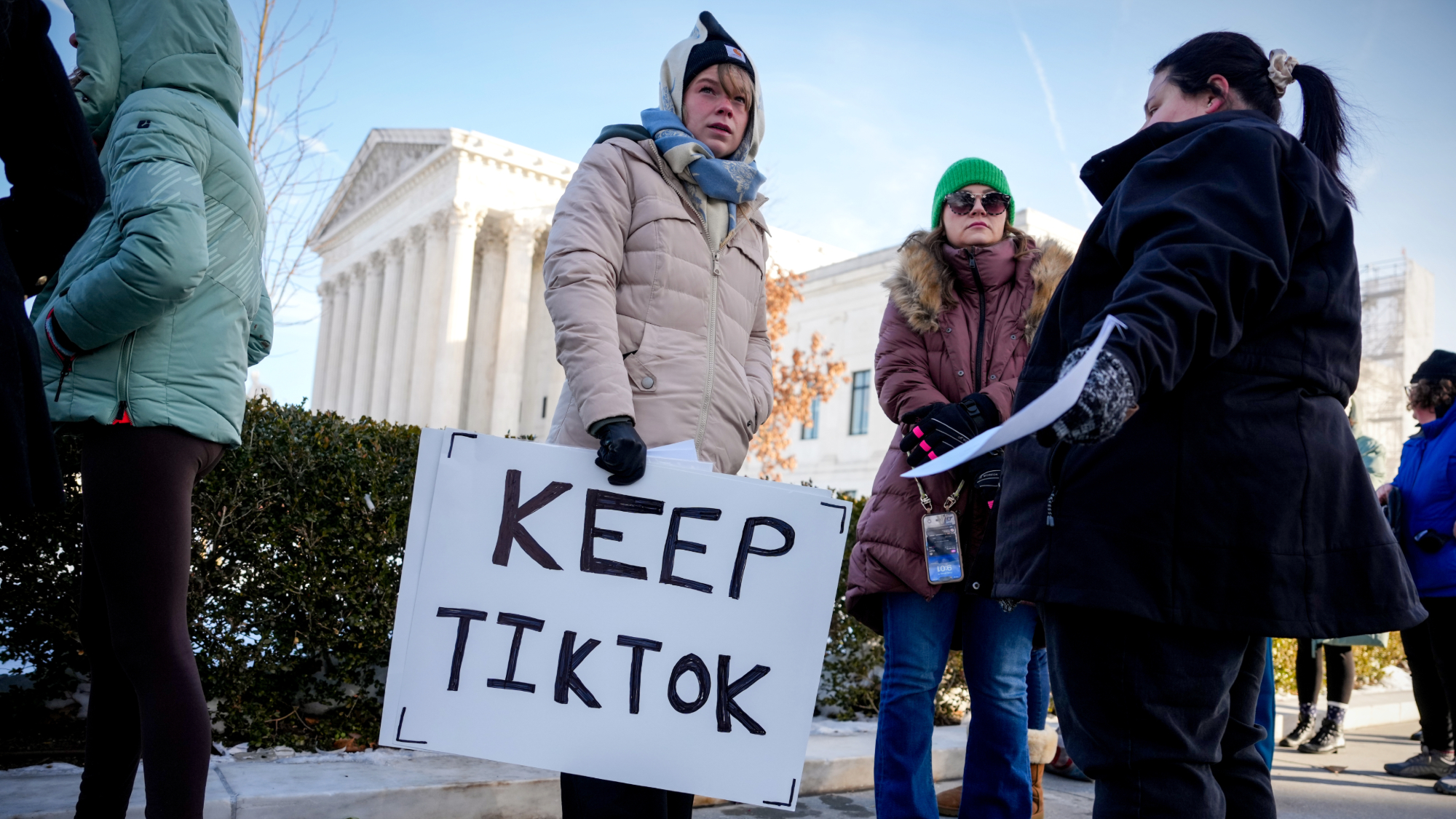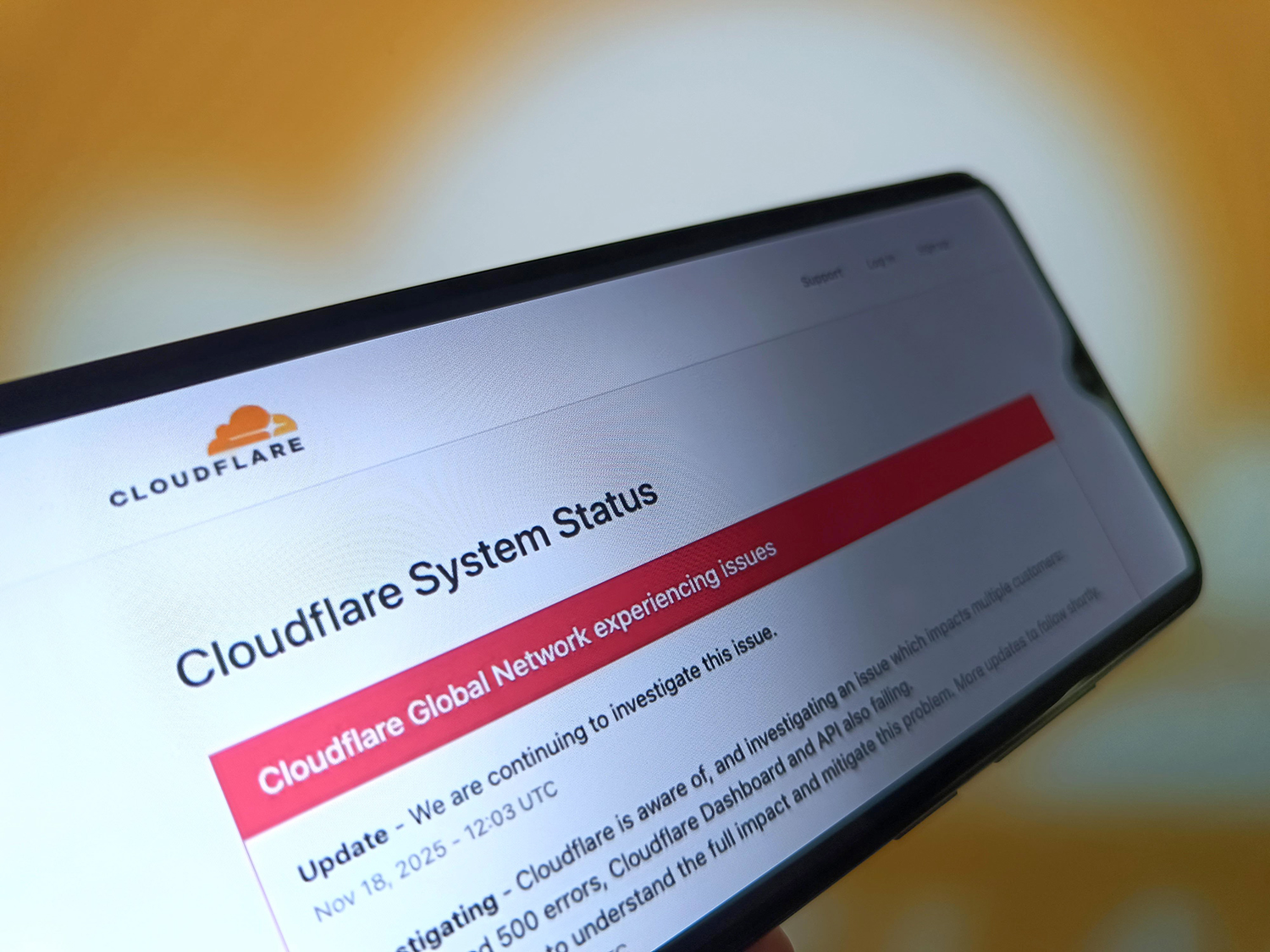TikTok's fate uncertain as weekend deadline looms
The popular app is set to be banned in the U.S. starting Sunday


A free daily email with the biggest news stories of the day – and the best features from TheWeek.com
You are now subscribed
Your newsletter sign-up was successful
What happened
TikTok is set to be banned in the U.S. starting Sunday under a law that passed with broad bipartisan support last year. The law gave TikTok's Chinese parent company, ByteDance, until Jan. 19 to sell the popular app to a U.S. company on national security grounds.
Who said what
"Barring a Supreme Court intervention or some 11th-hour move by the Biden administration," TikTok "plans to go dark in the U.S." at midnight Saturday, The Wall Street Journal said. President Joe Biden does not plan to enforce the ban on his last full day in office, a White House official said Thursday. "Given the timing of when it goes into effect over a holiday weekend a day before inauguration, it will be up to the next administration to implement" the law.
Donald Trump plans to keep "TikTok from going dark," incoming national security adviser Rep. Mike Waltz (R-Fla.) told Fox News Thursday. The president-elect is "considering an executive order to allow TikTok to continue operating," The New York Times said, though it's "unclear" if such an order "would survive legal challenges or persuade the app stores and cloud computing companies to take steps that could expose them to huge penalties" under the 2024 law.
The Week
Escape your echo chamber. Get the facts behind the news, plus analysis from multiple perspectives.

Sign up for The Week's Free Newsletters
From our morning news briefing to a weekly Good News Newsletter, get the best of The Week delivered directly to your inbox.
From our morning news briefing to a weekly Good News Newsletter, get the best of The Week delivered directly to your inbox.
What next?
TikTok CEO Shou Zi Chew is expected to have a "prime seating location on the dais" at Trump's inauguration on Monday, next to other Big Tech executives, PBS said.
A free daily email with the biggest news stories of the day – and the best features from TheWeek.com
Peter has worked as a news and culture writer and editor at The Week since the site's launch in 2008. He covers politics, world affairs, religion and cultural currents. His journalism career began as a copy editor at a financial newswire and has included editorial positions at The New York Times Magazine, Facts on File, and Oregon State University.
-
 Political cartoons for February 15
Political cartoons for February 15Cartoons Sunday's political cartoons include political ventriloquism, Europe in the middle, and more
-
 The broken water companies failing England and Wales
The broken water companies failing England and WalesExplainer With rising bills, deteriorating river health and a lack of investment, regulators face an uphill battle to stabilise the industry
-
 A thrilling foodie city in northern Japan
A thrilling foodie city in northern JapanThe Week Recommends The food scene here is ‘unspoilt’ and ‘fun’
-
 Are Big Tech firms the new tobacco companies?
Are Big Tech firms the new tobacco companies?Today’s Big Question A trial will determine whether Meta and YouTube designed addictive products
-
 TikTok finalizes deal creating US version
TikTok finalizes deal creating US versionSpeed Read The deal comes after tense back-and-forth negotiations
-
 Is social media over?
Is social media over?Today’s Big Question We may look back on 2025 as the moment social media jumped the shark
-
 Data centers could soon be orbiting in space
Data centers could soon be orbiting in spaceUnder the radar The AI revolution is going cosmic
-
 AI griefbots create a computerized afterlife
AI griefbots create a computerized afterlifeUnder the Radar Some say the machines help people mourn; others are skeptical
-
 Australia’s teen social media ban takes effect
Australia’s teen social media ban takes effectSpeed Read Kids under age 16 are now barred from platforms including YouTube, TikTok, Instagram, Facebook, Snapchat and Reddit
-
 Separating the real from the fake: tips for spotting AI slop
Separating the real from the fake: tips for spotting AI slopThe Week Recommends Advanced AI may have made slop videos harder to spot, but experts say it’s still possible to detect them
-
 Blackouts: Why the internet keeps breaking
Blackouts: Why the internet keeps breakingfeature Cloudflare was the latest in a string of outages
